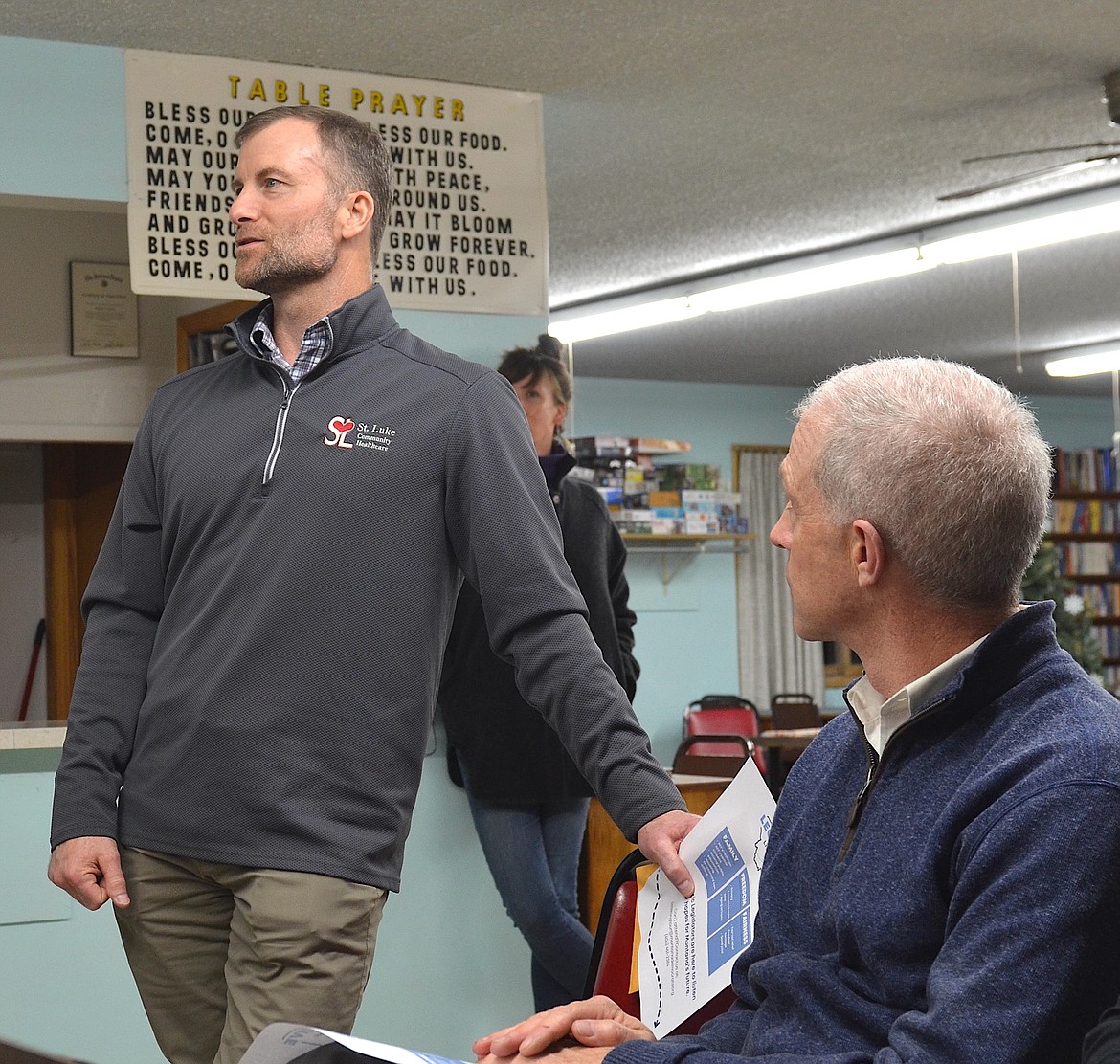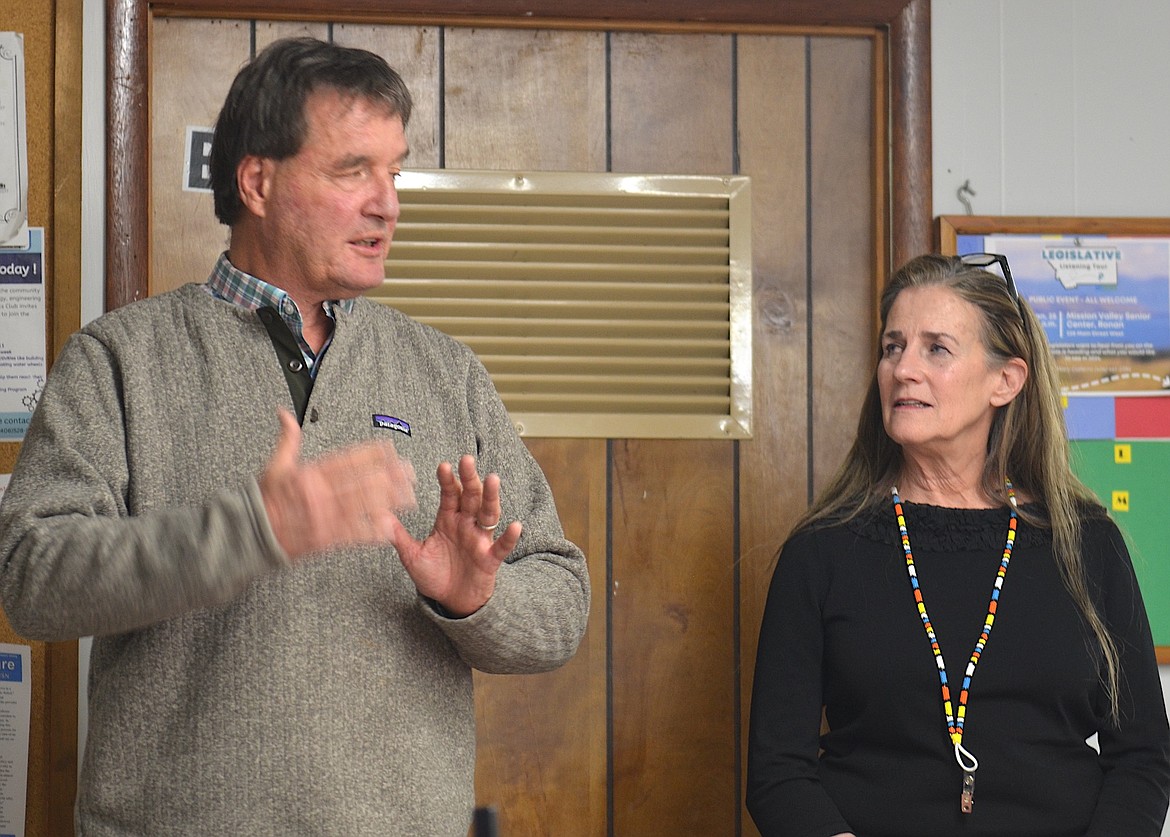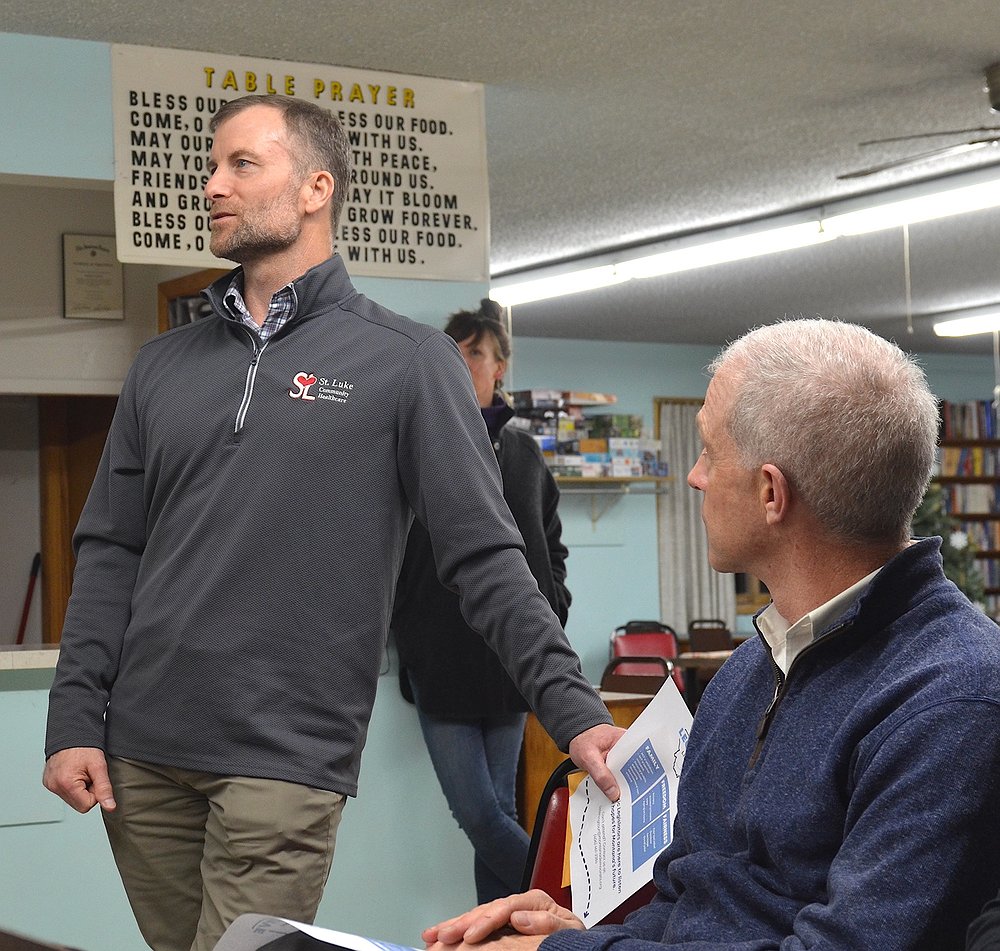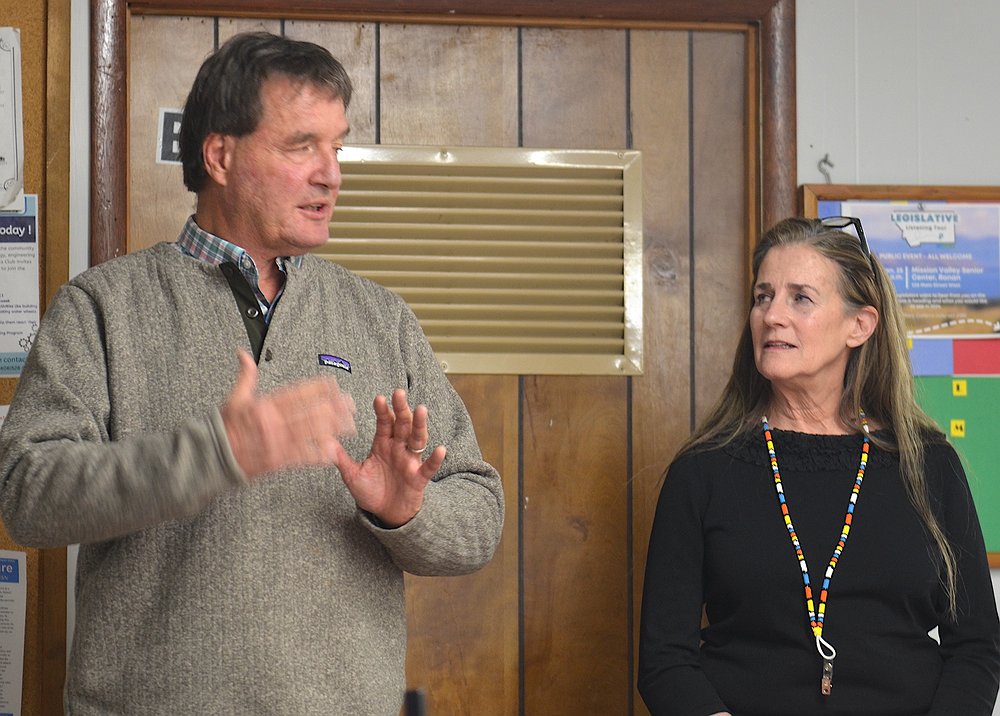Hospital directors say Medicaid expansion crucial to Lake County
Two hospital administrators and the former head of the state Department of Public Health and Human Services (DPHHS) sat in on a Democratic Party-sponsored listening tour Jan. 25 at the senior center in Ronan. At the top of their list of concerns was whether the 2025 Legislature was likely to support reauthorization of Medicaid expansion.
Medicaid is a joint federal and state program that provides health coverage to people with limited resources who meet certain income and eligibility criteria. Under the federal Affordable Care Act (also known as Obamacare), states were allowed to expand the age and income eligibility parameters for Medicaid coverage. In Montana, the feds pay 90% of the price-tag for Medicaid expansion, while the state pays 10%.
The Montana Legislature approved that expansion in 2015, but it’s set to expire in 2025 without legislative action. A recent study by Manatt Health shows that in Lake County alone, Medicaid provides coverage for 37.6% of the population.
Tribal Councilwoman Carol Lankford asked those running for the Legislature, “Do you support Medicaid reauthorization? It's very important that we continue with this law.”
“The Democratic caucus unequivocally supports Medicaid reauthorization,” replied Tom France, who represents House District 94 in Missoula. “It's just vital for Montana citizens and, really, Montana communities like Ronan that have local hospitals that need the kind of certainty that Medicaid provides.”
Rep. Mary Caferro, who represents HD 82 in Helena, told the nearly 40 people attending the session that since being enacted Jan. 1, 2016, Medicaid expansion has cut the rate of uninsured adults in half. Around 320,000 Montanans are currently covered, and of the adult recipients, more than 60% are employed.
“Another chunk of them are going to college, and another group of them are taking care of a family member who has a disability, or Alzheimer's or dementia,” she said. “So if anybody talks about the lazy bum sitting on the couch eating lobster and skiing or whatever, that's simply not true.”
If the next Legislature doesn’t reauthorize the expanded program, she said impacts would be devastating for low-income Montanans and health-care providers across the state.
Dr. Melody Cunningam, a pediatrician from Missoula who is running for a seat in House District 97, told the gathering, “if Medicaid disappears or diminishes, rural hospitals close, because that's what they count on for revenue. And then the downstream effect is then the larger hospital systems get overwhelmed, and then they get into financial trouble.”
It’s a concern echoed by Devin Huntley, chief operating officer for Providence St. Joseph Medical Center in Polson.
“It's not just the rural hospitals that would really struggle if something happens to Medicaid,” he said. “It's the big hospitals also – the St. Pats, the Logans, the Communitys. They probably wouldn't close, but the number of services and the services that they do at break-even or even at a loss would disappear.”
Steve Todd, CEO for St. Luke Community Health Care in Ronan, said the impact of not reauthorizing the expansion of Medicaid could cost his hospital alone between $4 million and $6 million a year. “That’s a huge economic impact on our facility,” he said.
Todd added that in addition to potentially causing closures and limiting services across Montana, “it will have an impact across all of our communities and to all taxpayers, truly, because those costs will rise and they will be borne by all of us.”
France said he has been in touch with the Montana Hospital Association. “They have done their vote counts, and they feel like the reauthorization is within one or two votes of passing or failing,” he said.
He also pointed out that Gov. Greg Gianforte, who is running for a second term this year, has yet to take a position on reauthorizing Medicaid expansion.
“We need to know where politicians stand on Medicaid reauthorization because it's so important to so many Montanans,” he said. “It's too big of a question for any candidate running for governor, or really any of the state elected offices, to duck.”
Medicaid redetermination: 100,000 lose coverage
Anna Whiting Sorrell, who headed the Department of Public Health and Human Services (DPHHS) during the administration of former Gov. Steve Bullock, pointed to another area of concern. Medicaid was easier to access during the COVID pandemic. But since that public health emergency officially ended in 2021, Medicaid recipients have had undergo an evaluation to make sure they still qualify for the program.
In the process, Sorrell says more than 100,000 Montanans have lost coverage, mostly because of procedural issues. Of those, around 30,000 are children.
“I think fraud and abuse are wrong,” she said. “But I also want people that are eligible to be on Medicaid.”
Todd said that St. Luke has worked with DPHHS to have paperwork and processes in place to provide “presumptive eligibility” to patients. “I think it's to all of our benefits and it’s the right thing to do to ensure individuals get the care they need when they need it.”
Shirley Azzopardi, who is running for HD 13, representing Polson, asked if there was a way to simplify the enrollment process. “That process was so complicated,” she said. “Some people didn't get their mail, some people didn't get the notification, and they didn't find out until they went to the doctor that they’d lost it.”
According to Caferro, “Montana is tied for third in the nation for doing the worst job” of managing Medicaid re-enrollment in the aftermath of COVID. She said an estimated 41,000 people who’ve applied have yet to hear from the DPHHS as to whether their applications were approved.
“The backlog is significant and there's been no nimbleness at all on the part of the state to address this issue,” added France.
At the close of the meeting, Caferro said her goal is to reauthorize expansion and “lift the sunset. We want to quit going back every five years and wasting this money to try to get it renewed.”
She added that the first Medicaid expansion bill that was approved was a bipartisan effort.
“We were in a minority, the Democrats, but we had a good collaboration with good relationships and a lot of that happened because the public was paying attention,” she said. “So pay attention and keep talking.”





